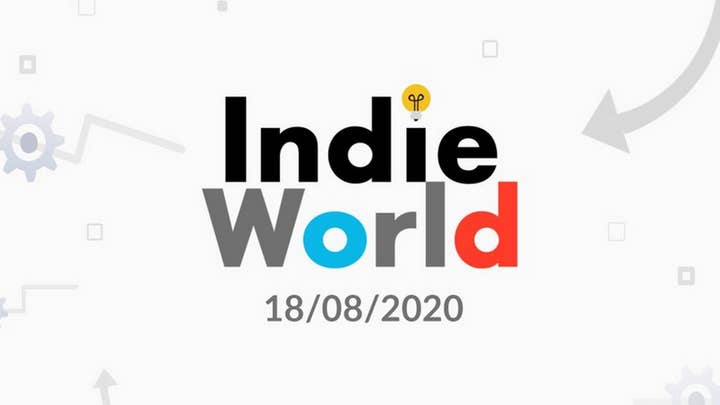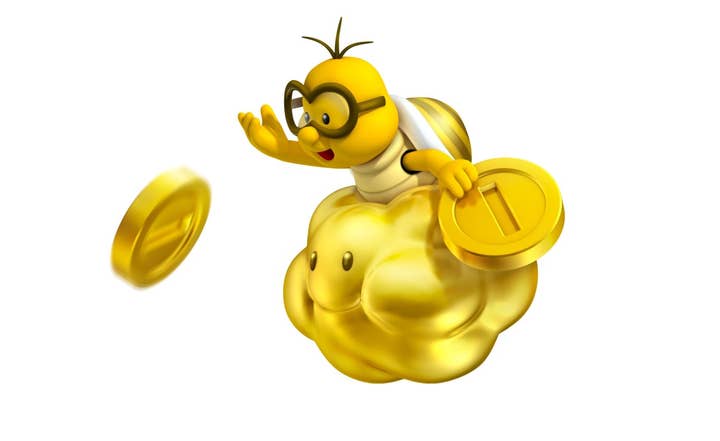The silver linings in the clouds of 2020 | Opinion
Even as recession and schedule slippages bite hard in the coming months, some sectors have an opportunity to flourish
It's hardly an original observation, but 2020 has been one hell of a year. It stands to reason that one of the more catchy coinages has been the term "doomscrolling" -- the act of opening Twitter first thing in the morning and scrolling down to find out what fresh hell has unfolded while you slept, even though you know for certain that it's going to put you in a bad mood before you've even had your first mouthful of coffee.
For the games industry, too, it's felt like brand new reasons to drink heavily have been coming thick and fast. Even cushioned by some great sales numbers thanks to a global population suddenly finding itself with a lot of indoor leisure time to fill, we've still faced a year in which the industry has been forced to rapidly adapt to remote working (with very mixed success), rocked by a host of scandals over inappropriate behaviour and sexual harassment, witnessed an ongoing spat over digital distribution revenues that's become increasingly bitter, angry and cynical, seen its growth in markets like China threatened by geopolitical sabre-rattling and attacks on democracy, and now faces a major demand-led recession just in time for two new console launches -- for at least one of which headline software titles have been delayed into next year.
"It's been a year of upheaval -- and upheaval almost always creates opportunities for someone"
What I'm saying is that there hasn't been a whole lot of good news to write about. There have been some fantastic games released, of course, and a handful of important success stories, but for the most part, almost every good story has had a caveat, and few of the clouds have had much of a silver lining.
Nonetheless, it's worth turning some of the negativity that's dominated 2020 around, because for all that it's been a rough year for consumers, creators and the industry at large, that also means it's been a year of upheaval -- and upheaval almost always creates opportunities for someone. For a start, even if there's concern that a lot of consumers have front-loaded game spending into the first half of the year and will be tightening their purse strings as the recession bites deeper in the coming months, it's worth acknowledging that a lot of game companies really have done very well in the last quarter or two.
The financial problems that the broader industry faces are real, but compared to most other sectors -- including fairly comparable creative industries like TV and film -- the games business has experienced far less disruption to both its ability to reach consumers (there's no equivalent of the cinema shutdown which has frozen most film industry releases) and its ability to create new games (forcing big studios to switch to large-scale remote work hurts, but not nearly as much as forcing TV and movie crews to suspend filming, figure out some way to run "socially distanced" sets, and shut down their ability to shoot on location in most places).
"For the most part, indie developers haven't faced the same problems as AAA developers this year"
The great revenues we saw last quarter might be hard to sustain, or even constitute a feast before a famine, but they're still a testament to this medium being far more resilient than most entertainment sectors in the face of the pandemic.
Beyond that, there are also some bright patches we should really be paying attention to -- something that I was reminded of by Nintendo's exclusively indie-focused Direct event this week, which showcased a pretty great line up of indie titles that are coming to Switch in the near future. It's not a new thing, or a surprise of any kind, that Switch has a great indie software line-up, but the reaction this event received from consumers (and indeed the media) felt stronger and more positive than usual, and it's hard to imagine that's not at least partially down to the somewhat bare slate of major first-party and AAA titles on the console's near-term launch schedule.

There are a ton of great titles from smaller developers and studios on that schedule -- not to mention on the schedule for other platforms -- and for the most part, indie developers haven't faced the same problems as AAA developers this year. COVID had an impact on people individually, of course -- it's a damned sight harder, I'm assured, to develop a stunning indie classic as a work-from-home developer when your kids haven't been to school for months -- but many indie dev teams are used to remote working, often collaborating across continents on their projects. The slowdown has been minimal compared to the headache of figuring out how to get hundreds of developers on a tightly scheduled project moved over from an office environment to an entirely online working structure.
"While AAA titles are facing delays, indie games are largely hitting their release schedule marks"
This means that while AAA titles are facing delays, indie games are largely hitting their release schedule marks. That provides a temporary window of opportunity in which the single largest bugbear of high-quality indie developers -- discoverability -- is momentarily eased. It's not just a question of discoverability on a digital storefront, either; the relatively quiet launch schedule in the back half of 2020, aside from a few huge standouts, also allows creative, well-made titles with smaller budgets a better chance to win media attention and consumer mindshare.
The response to the indie-focused Nintendo Direct was a great example of this. It may be unfair, because they'd be high-quality games regardless of when they launched, but it's hard to imagine quite so much attention being paid to these titles if there was also a big first-party game looming.
It helps, of course, that there's a large audience of consumers with more gaming time than usual on their hands. While recession is looming and increasing numbers of gamers may be more budget-conscious than usual, that factor also plays into the hands of indie developers to some extent. For all that the indie space has continued to flourish creatively, it's been a relatively rough few years to actually be an indie developer, a large factor in this being the straight-up overcrowding of the space. In this sense, 2020 offers a rare window of opportunity for games that might otherwise have sailed a little under the radar to make a genuinely huge impact.
"Subscription-based games also have a solid opportunity, especially the really big time-sinks like MMORPGs"
Looking away from the indie scene, a very different sector of the industry that's likely to flourish even in the face of economic difficulties is service-based games. For all that some people turn their noses up at service-based offerings, these titles are generally cheap -- often free-to-start, and if you're frugal and sensible, pretty cheap to play on an ongoing basis -- and provide a lot of entertainment for the money you pay. This applies primarily to mobile and PC free-to-play titles, but subscription-based games also have a solid opportunity, especially the really big time-sinks like MMORPGs -- and of course, the current flavour of the moment, battle royale games.
What better year could there be for games with relatively low system requirements whose biggest issue, in ordinary times, is that they demand too much time from their players? It's hard to say if it'll make a really big impact on the bottom line, but it's noteworthy that Square Enix just chose a pretty opportune moment to revamp all of Final Fantasy 14's early-game content and make it more accessible, while Activision Blizzard's World of Warcraft is still doing pretty great business with its WoW Classic iteration.
There are somewhat less obvious potential beneficiaries of this climate too. Remakes and re-releases, for instance, generally don't seem to have been quite as heavily impacted as original titles in terms of release schedule slippage -- not least because so much of the work on these titles tends to be outsourced around multiple studios all over the world from the outset. Several re-release titles have been called out for their sales performance in financial results calls over the past few weeks, most notably PC conversions of big console titles of the past few years, and it's not unreasonable to assume that they're seeing a boost from the pandemic similar to the one enjoyed by indie games.
This situation is also likely to follow through to the next-gen consoles launching in a few months' time. Absent some of the big hitters that the platform holders would have wanted this year, there's an opportunity not only for indie titles but also for updated older titles to really make hay from consumers who are forced to dig a little deeper than expected to find things to do with their shiny new devices.
We may be facing a recession and a significant dip in consumer spending, all while the top-line AAA end of the industry struggles to hit its milestones, but consumers' appetite for entertainment has never been greater -- because god knows, it beats the doomscrolling. That creates opportunities for games that can nimbly skip past the development schedule problems and offer a high-value, low-cost-of-entry experience. It's an ill wind that blows no good at all, and even the very ill wind of 2020 is going to blow some good in the direction of creators and publishers who are smart and agile enough to adapt.









